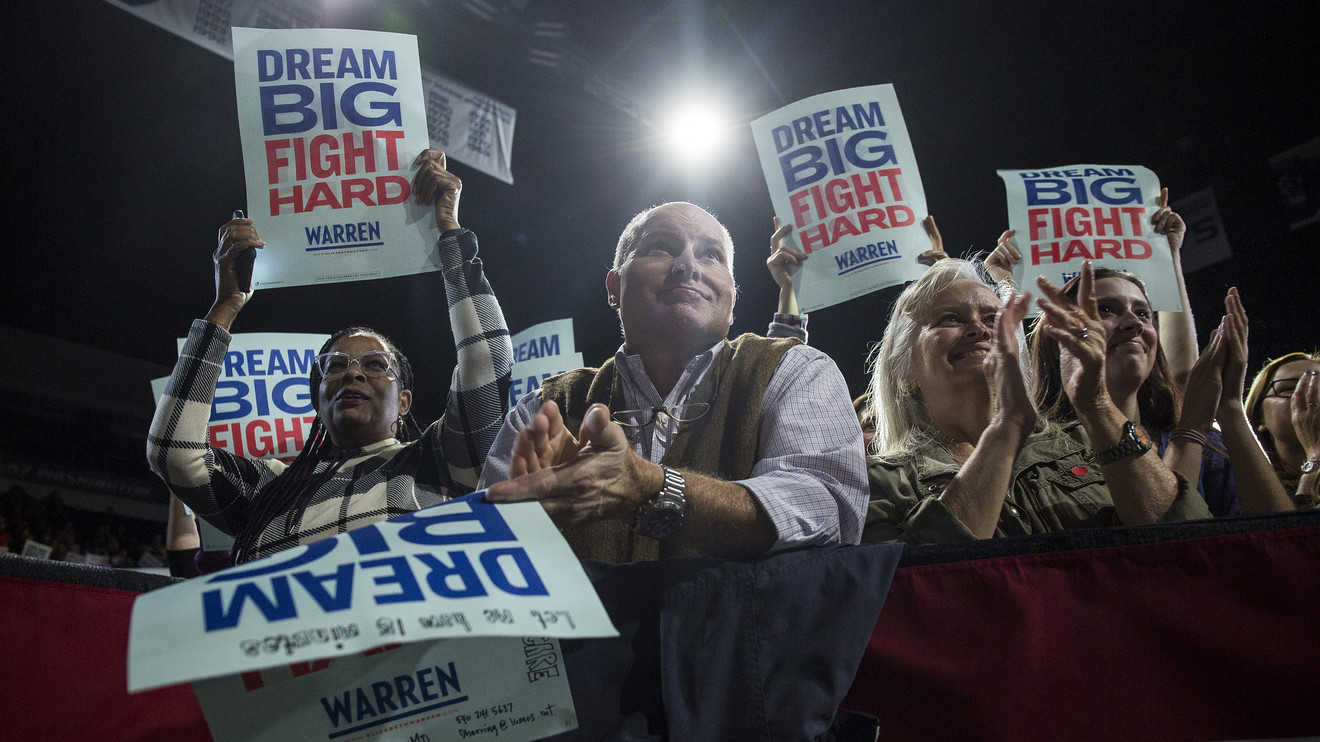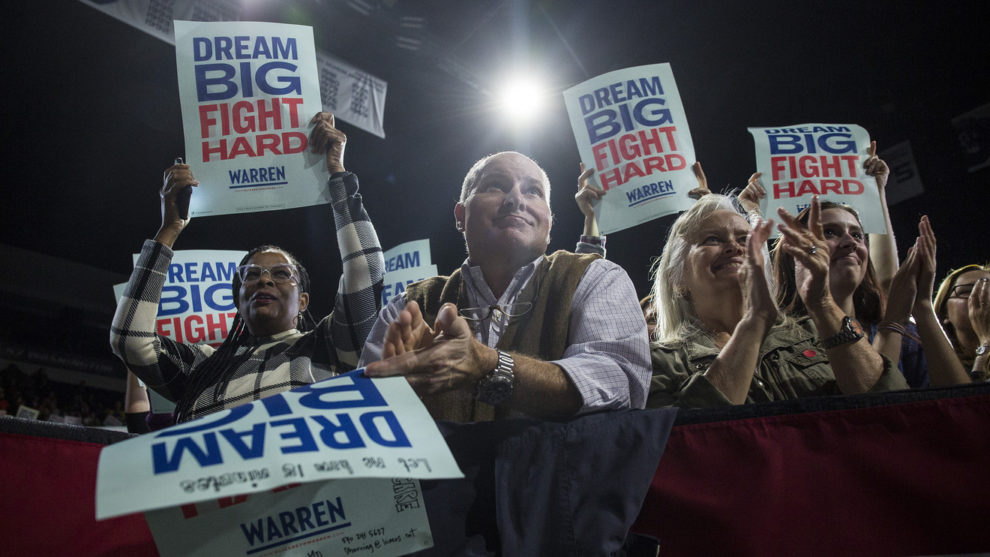
As Sen. Elizabeth Warren (D-Mass.) has risen steadily in the polls to become the narrow front-runner for the Democratic presidential nomination, Wall Street has gotten more and more paranoid.
The doom-and-gloom talk of what a Warren Administration would bring has risen to a near-hysterical crescendo. Hedge fund titan Leon Cooperman told Politico, in his best Bronxese, “..This is the f—ing American Dream she is s—ing on.” Another billionaire, money manager and lifelong Democrat Ron Baron, told CNBC Sen. Warren’s trademark wealth tax was “pretty nuts.”
In Democratic primaries Elizabeth Warren couldn’t buy endorsements like this, but it’s clear Wall Street has lost its marbles over her rise to the top of a pretty weak Democratic field. After all, when you look at how things get done in Washington, D.C., there are huge institutional barriers to a President Warren achieving her most ambitious plans.
Among the many Wall Street firms that have churned out reports on a possible Warren presidency, Barclays’ Shawn Golhar concluded that her biggest plans—Medicare for All, a $15-an-hour federal minimum wage, forgiving student loan debt, and a wealth tax—would all need Congressional approval. Other items, which would essentially reverse President Trump’s reversal of increased regulations under President Obama, could probably be done by executive order.
Assuming Democrats retain control of the House of Representatives in the 2020 election, the biggest obstacle to an “I’ve got a plan for that” presidency would be the U.S. Senate. Remember, President Obama had a filibuster-proof 60 Democratic Senate votes for some of the time he got his signature legislation—the economic stimulus package, Dodd-Frank banking reform, and the Affordable Care Act—through Congress.
Right now Democrats and independents who caucus with them have 47 Senate seats. Republicans have to defend 23 GOP seats of the 35 being decided in next year’s election, but as Barclays and other pundits have noted, the vast majority is in deep-red states. The Cook Political Report rates only Arizona, Colorado, and Maine as true toss-up GOP-held seats. But Doug Jones, the Democratic Senator from Alabama, is in a toss-up race, too, and if he loses, Democrats will need to win four seats just to get a 50-50 Senate where the vice president has the tie-breaking vote.
In that case, unless Senate Minority Leader Chuck Schumer (D-NY) agrees to end the filibuster—a big, big “if”—Democrats would be reduced to using “reconciliation,” a limited, highly technical procedure generally restricted to budgets and taxes. They could probably use reconciliation to repeal the 2017 tax cuts for corporations and the super-rich or even to impose a wealth tax or extend some of the provisions in the Affordable Care Act, Barclays concludes. But Warren’s “big ideas,” like Medicare for All, a Green New Deal, and forgiving student loans, would be a bridge way, way too far.
The presidential pen, however, carries a lot of weight. In general, through administrative actions and executive orders, President Obama tightened regulation of energy companies, financial institutions and for-profit colleges, while President Trump removed those Obama-era regulations. A President Warren would probably go even beyond Obama, cracking down hard on banks, oil companies, pharmaceutical manufacturers, and Big Tech. Her Justice Department would be extremely active in antitrust litigation, perhaps moving to break up Facebook FB, +1.03%, Amazon AMZN, +0.83%, or Google’s parent company Alphabet GOOG, +1.08% GOOGL, +1.07%, or even, Barclays speculates, undoing previous tech mergers.
Read: All that a ‘President Warren’ could change just by executive order
I think she would surprise a lot of people and continue some of the protectionist trade policies the Trump administration has instituted, especially toward China. However, a President Warren would put more of a pro-labor spin on any trade deals she negotiates.
Problem is, how many of her executive orders would withstand judicial scrutiny? She would face not only a likely 5-4 conservative Supreme Court but also a federal bench President Trump and Senate Majority Leader Mitch McConnell (R-Ky.) have stuffed full of 157 new conservative judges, more than any recent president at this point. Many of President Warren’s executive orders would face lengthy court challenges or judicial overrule, and a narrowly divided Senate would be hard pressed to engage in court packing, which almost undid even FDR at the height of his powers.
That’s why I think Wall Street is panicking prematurely and any sell-off prompted by a Warren nomination or even election may turn out to be the greatest buying opportunity for stocks in a decade. (It might also coincide with a new recession, but that’s the subject of another column.) A President Warren might find her biggest obstacle isn’t former Vice President Joe Biden, Sen. Bernie Sanders (I-Vt.), or even President Trump, but the ghost of James Madison, whose Constitutional mechanisms have undone many an ambitious scheme for big change in the past and will surely do so in the future no matter who is president.
Now read: If the Democrats keep saying crazy things about the economy, Trump will win again
Howard R. Gold is a MarketWatch columnist. Follow him on Twitter @howardrgold.











